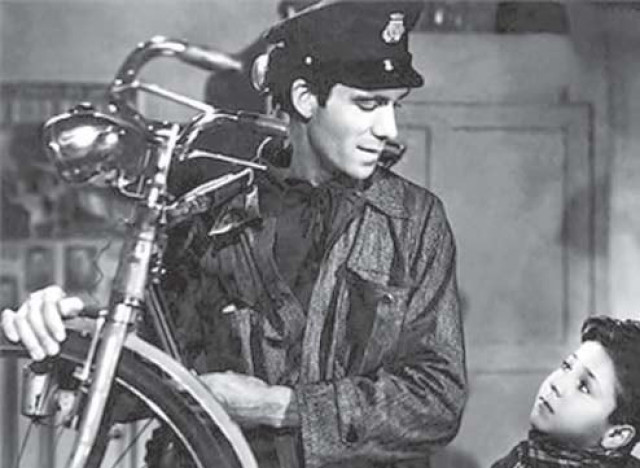Bicycle Thieves: The art of the unvarnished
South Asian Free Media Association screens the seminal Ladri di Biciclette or Bicycle Thieves (1948).

It was the downtrodden scrounging around for scraps, trying to make ends meet. Whatever cinematic value this reality had, became the proponent for neo-realism, a stark, unadulterated dogma to film that quite literally took to the streets, presenting the life as was being lived by the working class and the destitute in après guerre Italy. There was nothing romantic about it nor was the working man lionised; this was not the “cosmetics of poverty” but fictive truth. Incepted with Rossellini’s Rome, Open City (1945), the movement through the works of directors like Fellini, Antonioni, De Sica, lasted well into the 60’s, almost culminating with Pasolini’s Mamma Roma (1962).
Continuing with its screening of world film and classics, South Asian Free Media Association (SAFMA) on Friday screened the seminal Ladri di Biciclette or Bicycle Thieves (1948) – one of the chef d’oeuvre of the neo-realist movement – at its Media Centre in Islamabad. Directed by Vittorio De Sica , this 1948 production was, keeping true to its dogma, starred non-professional actors; a factory worker in the case of the lead, and was shot entirely on location, steeping itself entirely in the back alleys of Rome.
Antonio Ricci (Lamberto Maggiorani), the protagonist of the film, is an unemployed father of two, who after much wrangling, finally lands a government job pasting posters and public notices. But the job comes with a caveat; Ricci must own a bicycle to commute between sites, otherwise he will not get the job. Selling the family silver; his wife’s trove of bed sheets, he buys a cycle and gets the job. But a fairy tale this is not. On his first day on the job, his cycle is stolen and the rest of the film sees Ricci running from pillar to post trying to recover the stolen cycle in order to keep his job.
Accompanying this beleaguered and desperate man is his son, Bruno, who very much like a sidekick, hobbles along by his father’s side, being possibly the most endearing character on screen. For a seemingly trivial story, the director draws from it a bleak, unsympathetic picture of a life less privileged; it offers no answers, it draws no conclusions, it simply depicts. The film may have a message in it, that crime begets crime but one cannot view this dispassionately; there is always a reason, the mob that may gather to lynch, ignorant and uncaring. The film is not showy in its technique, not meant to be technically groundbreaking or cinematically astute; its value lies in its story, its performances, its portrayal. One can nearly be overwhelmed by the Brechtian manner in which the story is told but then that is the entire reason behind such a film. Repeatedly cited among the greatest films of all time, Bicycle Thieves is the art of the unvarnished, about the common man, speaking to him. A must watch.
Published in The Express Tribune, December 13th, 2010.


















COMMENTS
Comments are moderated and generally will be posted if they are on-topic and not abusive.
For more information, please see our Comments FAQ